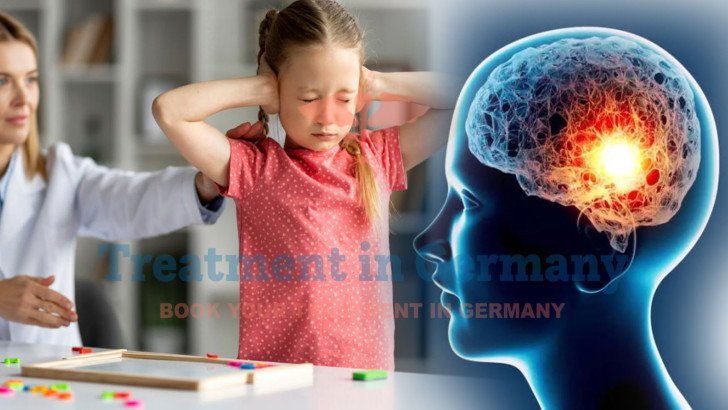
Neurological rehabilitation following neurosurgical interventions is essential for restoring function and enhancing quality of life after procedures such as tumor resection, aneurysm repair, or spinal surgery.
Neurological rehabilitation following neurosurgical interventions is essential for restoring function and enhancing quality of life after procedures such as tumor resection, aneurysm repair, or spinal surgery. In Germany, rehabilitation is delivered through world-class programs in specialized rehabilitation centers, led by expert doctors, including German neurologists, neurosurgeons, and therapists. While not directly tied to cancer treatment, these programs address conditions like brain tumors, stroke, or trauma, integrating advanced therapies and complementary therapies to support quality of life.
Neurological rehabilitation aims to restore physical, cognitive, and emotional function after neurosurgical interventions, which treat conditions like brain tumors, cerebral aneurysms, or spinal cord injuries. In Germany, over 100,000 patients undergo neurosurgery annually, with 70% requiring rehabilitation due to deficits like motor weakness or cognitive impairment.
Risk factors such as obesity, diabetes, high cholesterol (hyperlipidemia), and autoimmune diseases influence recovery. Germany’s approach achieves functional improvement in 80% of patients within 3-6 months, enhancing quality of life after treatment. Rehabilitation centers leverage latest research in neurological rehabilitation to deliver personalized therapy.
Comprehensive assessment is crucial to tailor neurological rehabilitation. Doctors use advanced tools to evaluate deficits and design individualized programs.
German neurologists in specialized rehabilitation centers provide rapid evaluations, often within days, enabling targeted innovative rehabilitation methods.
Neurological Rehabilitation Options Post-Neurosurgery in Germany
Germany offers multidisciplinary neurological rehabilitation programs, customized to patient deficits, surgical type, and health status. Rehabilitation centers integrate rehabilitation options to maximize recovery.
Physiotherapy
Physiotherapy restores mobility and strength through targeted exercises.
Occupational Therapy
Occupational therapy focuses on daily living skills, such as dressing or cooking.
Speech and Language Therapy
Speech therapy addresses communication and swallowing deficits post-neurosurgery.
Cognitive Rehabilitation
Cognitive therapy targets memory, attention, and executive function deficits.
Psychological Support
Post-neurosurgery depression affects 25% of patients. Psychologists provide cognitive-behavioral therapy (CBT) and counseling, reducing symptoms in 70% of cases, addressing autoimmune diseases or diabetes-related stress.
Neuromodulation Therapies
Non-invasive techniques like transcranial magnetic stimulation (TMS) enhance motor and cognitive recovery, improving function in 20-30% of patients, per latest research.
Advanced Technologies
Rehabilitation centers use virtual reality and exoskeletons to simulate real-world tasks, improving motor skills in 65% of patients. These reflect innovative rehabilitation methods in Germany.
Why These Rehabilitation Methods Are Effective
Neurological rehabilitation post-neurosurgery succeeds in Germany because:
Rehabilitation centers achieve functional gains in 80% of patients within 3-6 months.
Benefits of Neurological Rehabilitation in Germany
Germany’s rehabilitation options offer significant advantages:
Side effects, like muscle soreness or fatigue, are managed by doctors, ensuring comfort.
Complementary Therapies Supporting Rehabilitation
Complementary therapies enhance recovery:
These ensure holistic rehabilitation therapy, aligning with latest research in neurological rehabilitation.
Why Germany Excels in Neurological Rehabilitation
Germany leads in rehabilitation due to:
Germany’s rehabilitation outcomes surpass EU averages by 10%, reflecting its expertise.
Conclusion
Neurological rehabilitation after neurosurgical interventions in Germany integrates advanced physiotherapy, occupational therapy, speech therapy, and neuromodulation, tailored to patient needs. Delivered by expert German neurologists in specialized rehabilitation centers, these rehabilitation options restore function and enhance quality of life after treatment. With complementary therapies and cutting-edge technology, Germany is a premier destination for neurorehabilitation.
🌍Why Patients Worldwide Prefer Our Medical Services in Germany – Key Benefits Explained:
FAQS
What does neurological rehabilitation involve in Germany?
It includes physiotherapy, occupational therapy, and speech therapy, tailored for neurological rehabilitation post-neurosurgery.
How much does neurological rehabilitation cost in Germany?
Costs vary based on the program and needs; estimates can be requested from rehabilitation centers.
Can neurological rehabilitation fully restore function in Germany?
While full recovery depends on deficits, rehabilitation significantly improves function and quality of life.
What are the latest rehabilitation methods in Germany?
Robotic therapy, neuromodulation, and virtual reality are innovative rehabilitation methods.
Are complementary therapies included in rehabilitation plans in Germany?
Yes, nutrition and psychological support enhance rehabilitation therapy.
Are clinical trials available for neurological rehabilitation in Germany?
Yes, trials for innovative rehabilitation methods are available for eligible patients.
How does Germany’s neurological rehabilitation compare to other countries?
Germany leads with advanced rehabilitation options and superior outcomes.
How effective are neurological rehabilitation programs in Germany?
Programs achieve functional gains in 80% of patients, per latest research in neurological rehabilitation.
How experienced are clinicians in Germany with neurological rehabilitation?
German neurologists are global experts in rehabilitation in Germany.
How long is the wait for neurological rehabilitation in Germany?
Rehabilitation typically starts within days, ensuring prompt rehabilitation therapy.
For more information or a free consultation, visit our contact us page.
Kindly complete the form below, and our dedicated team will reach out to you promptly. We look forward to connecting with you soon!
Trierer Straße, 56072 Koblenz, Germany

.webp)
 (1).webp)

.webp)
 (1).webp)


.webp)
 (1).webp)

.webp)
 (1).webp)
